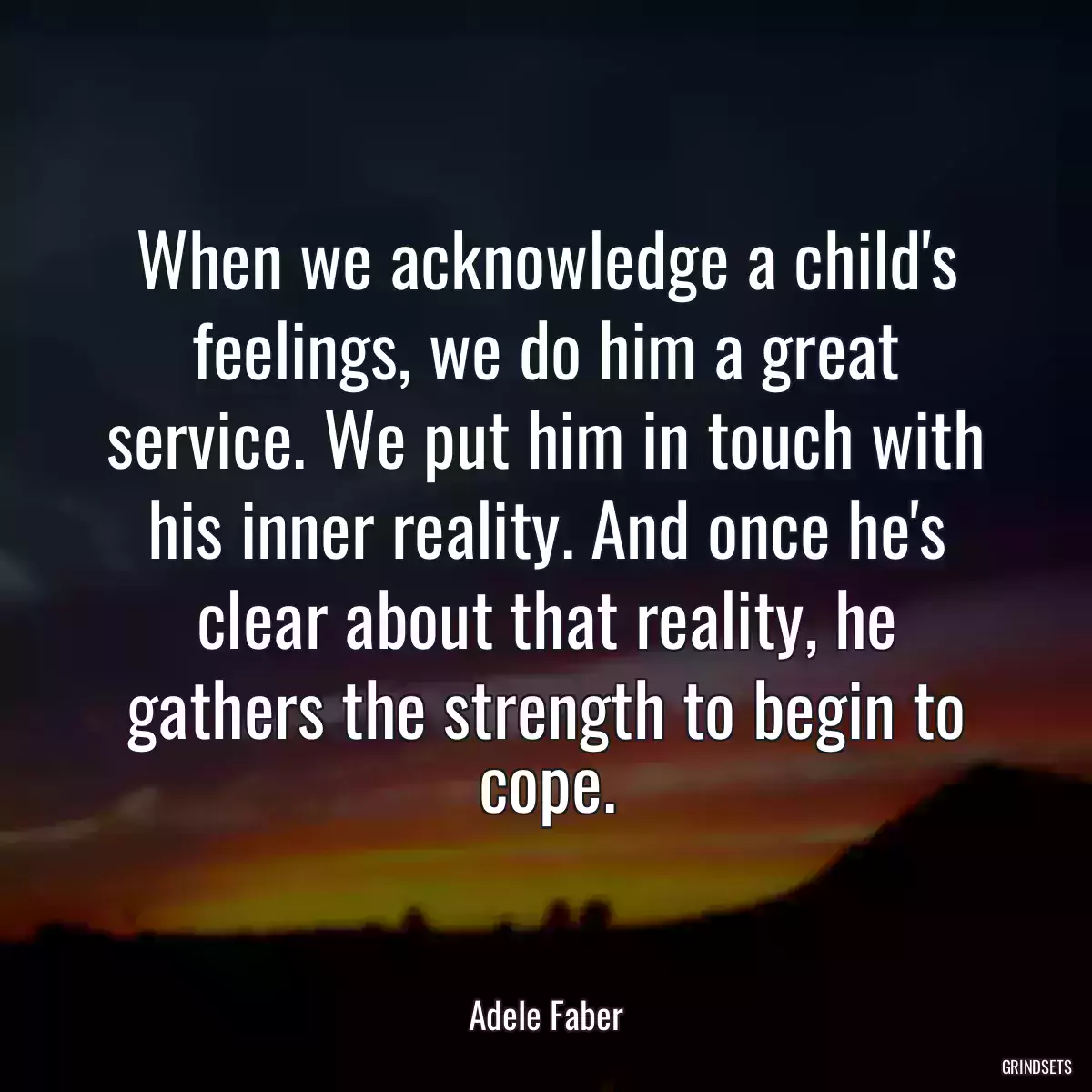
When we acknowledge a child's ...

More phrases
If one does not know to which port one is sailing, no wind is favorable.
What a distressing contrast there is between the radiant intelligence of the child and the feeble mentality of the average adult.
We are masters of the unsaid words, but slaves of those we let slip out.
I have always found that mercy bears richer fruits than strict justice.
A lie gets halfway around the world before the truth has a chance to get its pants on.
Quotes from the same author
From their struggles to establish dominance over each other, siblings become tougher and more resilient. From their endless rough-housing with each other, they develop speed and agility. From their verbal sparring they learn the difference between being clever and being hurtful. From the normal irritations of living together, they learn how to assert themselves, defend themselves, compromise. And sometimes, from their envy of each other's special abilities they become inspired to work harder, persist and achieve.
Adele Faber
Take two kids in competition for their parents' love and attention. Add to that the envy that one child feels for the accomplishments of the other; the resentment that each child feels for the privileges of the other; the personal frustrations that they don't dare let out on anyone else but a brother or sister, and it's not hard to understand why in families across the land, the sibling relationship contains enough emotional dynamite to set off rounds of daily explosions.
Adele Faber
The mere existence of an additional child or children in the family could signify Less. Less time alone with parents. Less attention for hurts and disappointments. Less approval for accomplishments. . . . No wonder children struggle so fiercely to be first or best. No wonder they mobilize all their energy to have more or most. Or better still, all.
Adele Faber